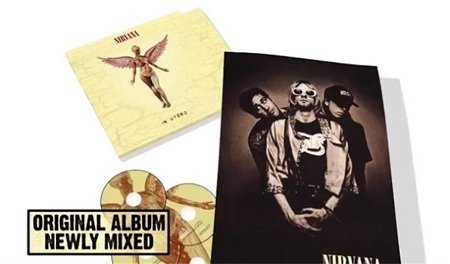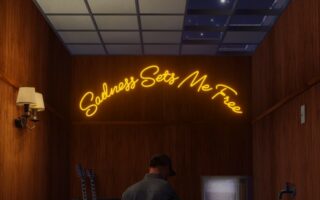Re-issue! Re-package! Re-package!
Re-evaluate the songs,
Double-pack with a photograph,
Extra track (and a tacky badge).
The Smiths, ‘Paint a Vulgar Picture‘, 1987

The recent announcement that Oasis‘ ‘Definitely Maybe‘ is to be re-issued sparked a debate which has been running for years amongst consumers and artists alike; just how much worth is there in making old music feel new again?
Morrissey‘s take on the subject was quite clear during the ‘Strangeways Here We Come‘ period, his acerbic wit and contempt for the industry’s vainglorious marketing wheezes made plain shortly before The Smiths’ implosion. Even this scornful and ethically sound position covered up a more dichotomous belief however, one alluded to in his melodramatic recent autobiography. In it the singer pulls few punches about the shortcomings of both the Rough Trade label which released most of the band’s material whilst they were still together and the Sire imprint who did likewise in the US. Neither outfit he bitterly claims were committed to getting them radio play or wider public appreciation, to the point where no Smiths album ever reached number one during the band’s truncated existence. The main beneficiary he’s at repetitive pains to point out was Rough Trade itself, parleying the kudos of unprecedented chart exposure into a platform for commercial success.
In short, the very same suits which old misery guts himself regarded as joyless purveyors of snake oil were just the kind of people he really needed to help arguably Britain’s most influential group between The Beatles and the Arctic Monkeys be widely recognised as just that. Oh the complicated web we weave…
Many other performers stuck in a rut have felt a similar moral dilemma – go mainstream or continue in the Transit van of obscurity? In reality, not many have had the luck or talent to force the issue, one of the most iconic being Kurt Cobain, a complicated man who manipulatively orchestrated Nirvana‘s move from the Sub Pop to Geffen labels, the rest being tragic history.
Having had the pleasure or reviewing the recent re-issue of ‘In Utero‘, Cobain’s middle digit salute to an audience so vast he’d long since lost the ability to comprehend it was clear. Accompanied by a lavish colour brochure and expanded to a three disc set and live DVD, as a body of work it was certainly encyclopedic enough to satisfy the rabid archivists amongst us, albeit most of the material would probably have been easy to find on social networks over the last decade or so.
In terms of an appraisal, it proved a far harder piece to write than anticipated; critically the destructive power and willful lack of concern for its public make the original version still utterly fascinating, the work of a singular vision and coldly articulated rage. Without too much condescension however, the music is still the music. Twenty years on it still kicked ass, but in a familiar way, a big steel toe capped boot that was expected, its punches and feints all ones that could be dodged. In a way this served to highlight the less attractive conceit of the whole re-issue game; if something was so goddamn wonderful in the first place, why does it need to get dressed up as something different?
In the bygone days of the twentieth century the idea of exhuming an old record in totality was considered too much like hard work for the listening public. With radio operating as the key promotional channel for most artists at the time, what we really needed – so the suits thought – was hits. As a result it wasn’t uncommon for performers to complete their four or five album deals by releasing a retrospective – or live version of the same thing – as a method of contractual fulfillment. This basic premise still exists even in these more cynical times; add in a couple of new things just to make the punter feel slightly less ripped off, and then proceed to your next deal.
The problem is that in the age of digitisation, fewer people want to pay for whole albums anyway. It’s possible – preferable it could be argued – to cherry pick your own favourite stuff and then stick it onto a playlist – there are many digital music platforms that will even do it for you. This leaves the labels, whom in some cases have never quite got the internet, with a headache. When the price of your product is falling and illegal downloading rife, how to get Joe Public to part with their hard earned? Answer: make it feel special for them again, and then go with your oldest friend, multi formatting.
What this means is that ‘Definitely Maybe’ will be released on an array of mediums, each designed to offer something for everyone from Dad on Father’s Day to cassette hipsters desperate to show off their Aqua Walkmans in Friends of Ham. One of these is even something audaciously called a ‘Standard CD’, a handle which somehow makes it sound as appealing as a set of spanners. Over the years even buying what you already own has become something of a credibility minefield.
This writer against re-issues, for a number of reasons, not least of which is because as hypocritical as Morrissey was being, he had a point. Music is just as much about context as depth. What does that mean? Well, ask yourself what kind of completist wants to play demo versions of demo versions? What does it achieve to hear your favourite songs in their ugly duckling moments, and why should you care that you now can experience them in that way? Whilst it’s true to say that often it’s the first time some of these exhaustive collections of remixes, b-sides, out-takes and otherwise cutting room floor moments are gathered in one place, who listens more than once to four or five hours of this stuff slavishly? Especially when the essence of most of this ‘experience’ was handled by your younger self already years ago? Oasis have in fact already released a quite brilliant collection of B-sides; it was called ‘The Masterplan‘ and in my humble opinion, will always rank as their best album, regardless of what any new creative epoch any reformation will ever achieve.
There are of course more insidious, hidden affects that the obsession with re-issues has, such as the impact of resources being dedicated to finding new talent: why when you can release an eight disc set of ‘Bat Out Of Hell‘ with Jim Steinman speaking in Cantonese must you feel obliged to give a leg up to an artist making great music in a shed. Equally what raves from the grave offer is the ‘opportunity’ to discover bands whose back catalogue is owned by the copyright holders, meaning that in some cases the artists you’re newly hero worshiping aren’t even making a penny out of the whole thing.
One of the weirdest epilogues of the ‘In Utero’ box set comes by way of a letter from producer Steve Albini, sent to Nirvana seeking assurances about what he was letting himself in for. In it he wrote presciently warning of the trio being ‘temporarily indulged’ by their Geffen paymasters, ‘only to have them yank the chain’. The principled Albini then revealed his discomfort with that scenario, stating, “Then you’re in for a bummer and I want no part in it.”With that kind of anti-establishment Zeitgeist pervading the air, it’s hard even now to imagine exactly what Kurt Cobain would make of the record he’d carefully designed to destroy his career being reconstituted in such a blatantly exploitative way. Ultimately, the deluxe editions of anything are just that; over specified, unnecessary buffers of our ego, for which we pay an unjustifiably premium price.
Loving old music shouldn’t be some sort of endurance test or chore; there’s always a point at which you can get too much of a good thing.




